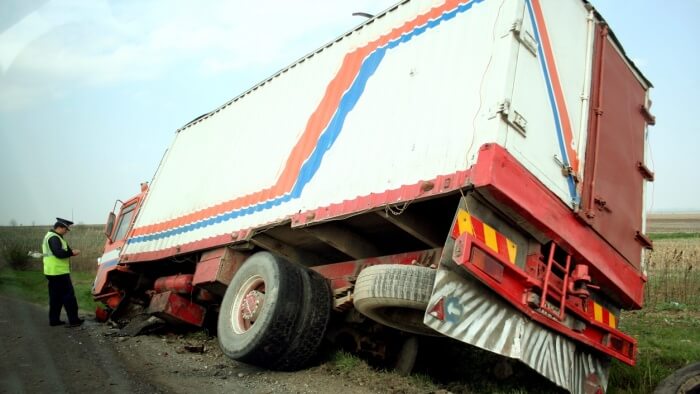Creating A Strategy In A Volitile World
How can you plan for the future in a world where Brexit and Donald Trump can happen?

I admit sometimes it can go wrong. It can hurt in so many ways. I was reminded of this as the bruise the size of a plum formed on my elbow and my battered knee swelled and my brand new jacket was shredded. It was a reminder that trial and error can sometimes mean just that, error, and in my case - pain.
But what’s the alternative - a carefully formed plan to iron out the issues and then test? I think not, despite my battered and bruised self. This is because recently I have witnessed the traditional process of trying to think it all through logically, and plan stymie performance again and again. The difficulty is the struggle to get beyond the planning phase wasting hours lost in its mortal embrace.
In business: A FTSE 100 company in desperate need of innovation as their core market declines rapidly and their ability to respond to digital opportunities is simply too slow and not relevant to its consumers. The culture in the business is ‘you get things right’. Fail and you’re fired. Success is security.
As a result, the amount of planning, duel diligence and preparation that goes into spending a small fortune on developing a new offering is immense. The outcome is successful by delivering some value, but the speed and resource spent in responding to the market demand means the gap to what the market leaders are doing is growing.
In the field: Billy is a keen cyclist and wants to improve his speed and his belief is that he needs to get more aerodynamic. His solution is to invest in a wind tunnel session and to hire a velodrome, however these are very expensive.
Billy sees little point investing in a wind tunnel session until he has everything organised, including his bike setup, weight and clothing, in order to get the most value. This makes sense, except we’re now a year on from Billy discussing his original plan and he’s yet to organise a wind tunnel session because he has not yet managed to get everything else sorted.
It’s an uncertain world
The world is in a state of flux. The uncertainty over Brexit and the implications of Trump in the White House means a complexity of variables, that it is simply impossible to factor into a meaningful assessment as to what people and businesses should be doing.
The number of assumptions involved in attempting to predict what will happen renders the outcome of nonsense. Thus, a detailed plan in such an environment creates an illusion of security where none exists. It also wastes masses of time and resources.
Instead, we need to focus on three things:
1) A continual investment in understanding
This is a long term approach to development that tasks people with being curious about the world around them and their specific areas of interest. We want people to deliberate on what they learn and experience, considering what this information could mean.
This isn’t focused on specific research that underpins a proposal, but instead if you are interested in a subject, for example, neuroscience, then your digital news feed will offer you a daily selection of neuroscience articles, and you will read the one or two that catch your eye.
Over time you will build an understanding for example of what the subject tells us about why people do the things they do. It is your own curiosity that drives your learning. What is key is that you continually invest time in your understanding, as this feeds into the second point.
2) Exercise judgement
Your accumulated experiences combined with your depth of understanding from being curious forms the basis of your gut instinct as to what the right thing is to do.
You will be in better position to blend the facts, the assumptions, inputs from friends and colleagues, to form a judgement on the action you wish to take. You recognise your decision for what it is – a judgement, an educated guess, but that’s ok, because of your approach to what you do, which is:
3) Trial and error
The action you take will be to start doing something and be ready to respond rapidly in the light of the feedback from the experience. Rather than a whole bunch of assumptions underpinning a plan, you have converted the world into a series of experiences that deliver real data helping to inform your judgement as to the next iteration.
Trial and error is going to go wrong from time to time – so the trials need to be small enough and fast enough to demonstrate whether the idea works or not, in order for you to manage the risk. It’s like steering a boat, each trial is an adjustment on the tiller to ensure it is heading in the right direction. As confidence builds in the overall direction of the boat, you can go faster.
In an environment where complexity of the interacting variables, the ability to exercise judgement based on decades of accumulated insight and experience, combined with a willingness to try and probably get things wrong, can convert fear and uncertainty into energy and purpose.
The FTSE 100 company described above has the opportunity to turn things around, not least because it is staffed by very clever, capable people whose combined insight and knowledge will allow them to exercise immense judgement – if only they were allowed to experiment a little without fear of losing their job.
Similarly, Billy’s an experienced cyclist who’s thought long and hard about how to go faster and has read lots around the topic. He could keep waiting until everything is just right before outlaying the expensive wind tunnel test time, or he could head out onto the roads this weekend and start trying some of the things that will make a difference, using nothing more than kit he already has.
He can start running some simple tests. Will it be as effective as a wind tunnel? No. But the difference is by the end of the weekend he will already have some data to think about, whereas at present he has nothing.
Trial and error is not without cost, as I have found out on many occasions, but there is value in the insights it delivers. In case you think this is nonsense, be curious, read up about all the amazing transformative innovations through the ages and you will find they emerged from a vast amount of trial and error and often a bit of luck. If it was good enough for them, it’s good enough for me.
Thanks for signing up to Minutehack alerts.
Brilliant editorials heading your way soon.
Okay, Thanks!




